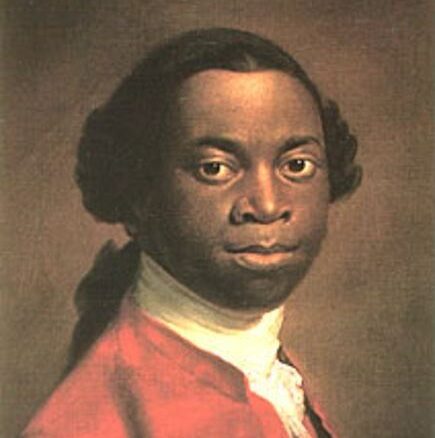
Olaudah Equ iano was born in 1745 in what is now southeastern Nigeria. He was the youngest son of a family that belonged to the Igbo people, a large ethnic group that had a complex system of governance and religious beliefs. When Equiano was around 11 years old, he and his sister were kidnapped by African slave traders, and they were separated from their family and community. Equiano was eventually sold to British slave traders, who transported him across the Atlantic to the British colonies in North America.
Equiano was initially sold to a plantation owner in Virginia, where he worked as a slave for several years. During this time, he was forced to perform back-breaking labor in harsh conditions, and he witnessed the brutal treatment of other enslaved people. However, Equiano was also able to learn new skills and gain knowledge from his experiences. He was taught how to read and write by the family that owned him, and he learned about the customs and language of the Europeans who lived in the colonies.
After several years in Virginia, Equiano was sold to a British naval officer named Michael Henry Pascal. Pascal took Equiano with him on his travels around the world, including to the Mediterranean, the Caribbean, and Great Britain. Pascal treated Equiano relatively well, and he allowed him to continue his education and pursue his interests. Equiano learned how to navigate a ship, and he became proficient in several languages, including English, French, and Spanish.
In 1766, after many years of traveling with Pascal, Equiano was able to purchase his freedom for £40. He then settled in London, where he began working as a merchant and trader. He continued to travel extensively throughout Europe and the Americas, and he became well-known for his business acumen and his advocacy for the abolition of the slave trade.
In 1789, Equiano published his autobiography, “The Interesting Narrative of the Life of Olaudah Equiano”. The book was a critical and commercial success, and it helped to shape public opinion about the slave trade and the conditions under which enslaved people were forced to live. In the book, Equiano describes his experiences as a slave, his struggles to obtain his freedom, and his subsequent travels and adventures. He also provides a detailed account of the customs and beliefs of the Igbo people, as well as his observations about European society.
Equiano also wrote and spoke extensively about the need to end slavery. He wrote several other books and pamphlets on the subject, and he became a leading voice in the abolitionist movement. He argued that the slave trade was immoral and that it violated the basic rights of human beings. He also criticised the treatment of enslaved people, and he called for their liberation and the abolition of the slave trade.
Equiano used his status as a successful businessman and well-travelled individual to gain access to influential people and advocate for the abolition of the slave trade. He wrote letters and gave speeches to members of Parliament, as well as to other influential figures in British society. He also helped to organise and support campaigns to end slavery.
Equiano’s work helped to change the attitudes of many people towards the slave trade, and he was instrumental in pushing for legislative change. The British government eventually passed the Abolition of the Slave Trade Act in 1807, which prohibited the transatlantic slave trade. The act was a major victory for the abolitionist movement, and it was a significant step towards the eventual abolition of slavery..
Equiano continued to work tirelessly for the abolition of slavery until his death in 1797. He wrote several other books and pamphlets on the subject, and he became a leading voice in the abolitionist movement in Britain. His legacy as a writer, businessman, and activist continues to inspire people around the world today.
